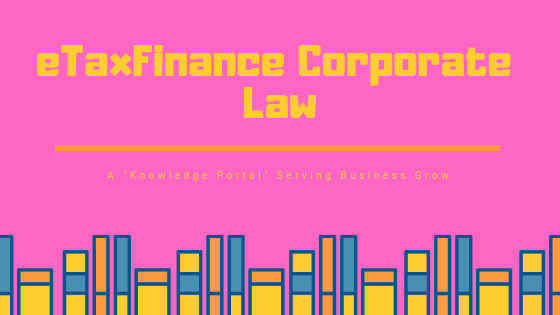Meaning of Partnership Firm:
A partnership firm is created when two or more persons unite together and pool resources to establish a business.
According to Indian Partnership Act, 1932, Section 4 defines Partnership as – “An agreement between persons who have agreed to share profits of the business carried on by all or any one of them acting for all.”
The members involved in the partnership are known as partners individually, while they are jointly known as a firm. The agreement on which terms and conditions of a partnership are written is known as Partnership Deed.
Meaning of Company:
A company is said to be a legal entity that is an association of a group of persons engaged in operating a business. It is voluntary and autonomous in nature.
According to The Indian Companies Act, 2013 Section 2(20) defines the term “company” to mean “a company incorporated under the Companies Act 2013 or any previous company law.”
A company can be formed by minimum of 2 to a maximum of 200 members if it is a private limited, while in case of public limited, the minimum number of members is 7 and there is no restriction on the maximum number of members.
Differences between a Partnership Firm and a Company:
Some of the difference between partnership firm and company are:-
| Partnership Firm | Company | |
| Definition | Partnership Firm is a mutual agreement between two or more persons to run the business and share profit and loss mutually. | Company is an association of persons with a common objective of providing goods and services to customers. |
| Applicable Act | Indian Partnership Act, 1932 | Indian Companies Act, 2013 |
| Legal Status | Firms are not legal entities. Therefore, it lacks a legal personality distinct from that of its constituent members. | A company is regarded as a separate legal entity from its members. |
| Minimum Number of Members Required | 2 members for a partnership firm | 7 for public limited, 2 for Private Limited |
| Maximum Number of Persons allowed | If the partnership firm is intended for financial transactions maximum of 10 and for other purposes maximum of 20 persons can form a firm | Maximum 200 members for a Private Limited, unlimited members for a Public Limited |
| The extent of Liability | In a partnership, the partners’ liability is unlimited. This means that each partner is responsible for the firm’s debts incurred during company operations. If the joint estate is insufficient to meet all of the obligations, these debts may be recouped from a partner’s private property. | In a company limited by shares, a shareholder’s liability is limited to the amount, if any, still owed on his shares. In the case of a guarantee company, the shareholder’s liability is restricted to the sum agreed upon. However, there may be businesses in which a member’s liability is unlimited. |
| Requirement of Audit | No audit required | Mandatory audit is required every year |
| Transferability of Shares | Consent required from all partners before transferring | Can be transferred |
| Duration of existence | If there is no agreement to the contrary, the death, retirement, or insolvency of a partner will result in the dissolution of the business. | Having eternal succession is advantageous for a company. |
For more details contact out team at +91-7991109093 or drop email us at [email protected]
Note: This Post was last updated on January 24, 2023
Disclaimer: The entire contents of this document have been prepared on the basis of relevant provisions and as per the information existing at the time of the preparation i.e. January 24, 2023. Although care has been taken to ensure the accuracy, completeness and reliability of the information provided, We assume no responsibility therefore. Users of this information are expected to refer to the relevant existing provisions of applicable Laws. The user of the information agrees that the information is not a professional advice and is subject to change without notice. We assume no responsibility for the consequences of use of such information. IN NO EVENT SHALL WE SHALL BE LIABLE FOR ANY DIRECT, INDIRECT, SPECIAL OR INCIDENTAL DAMAGE RESULTING FROM, ARISING OUT OF OR IN CONNECTION WITH THE USE OF THE INFORMATION.


